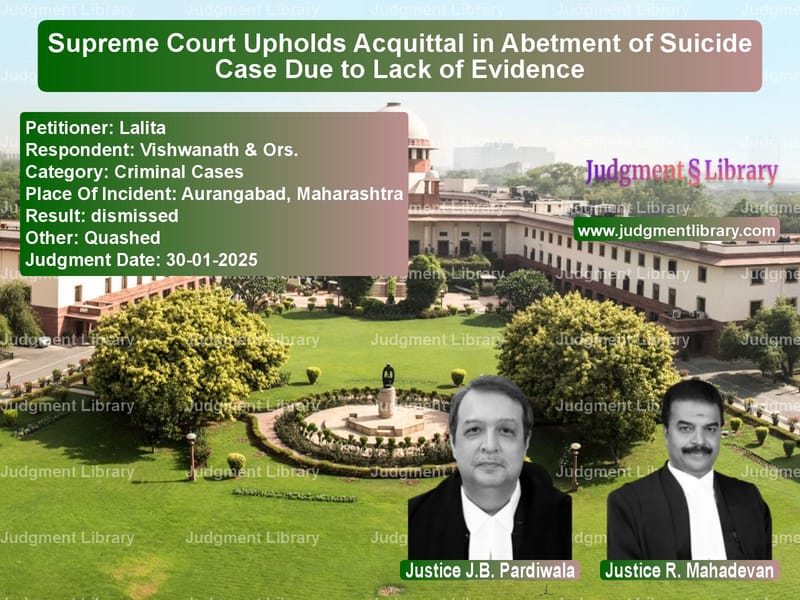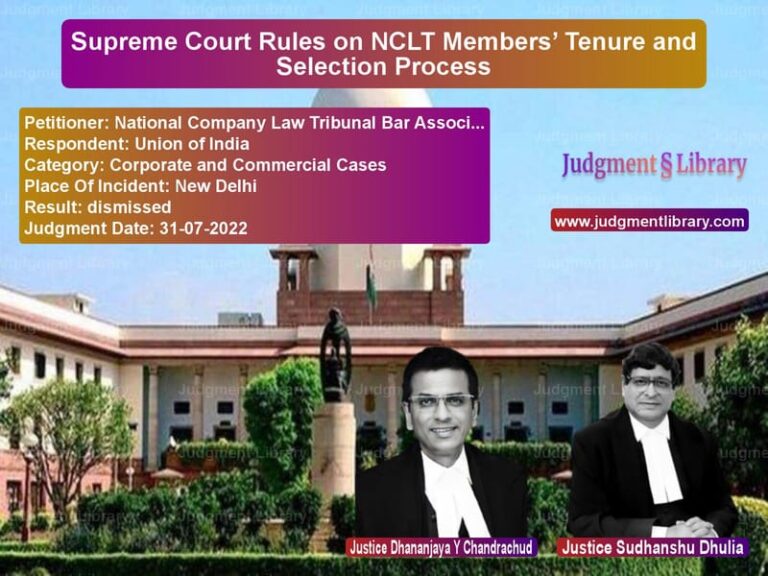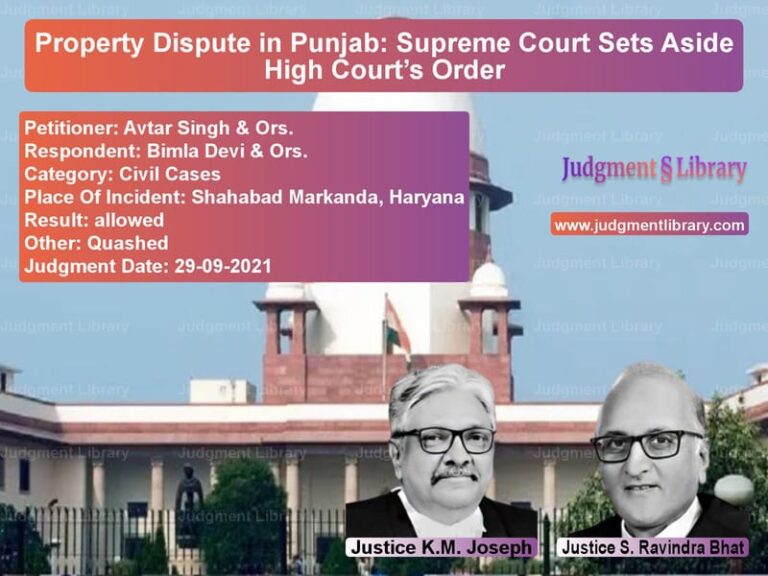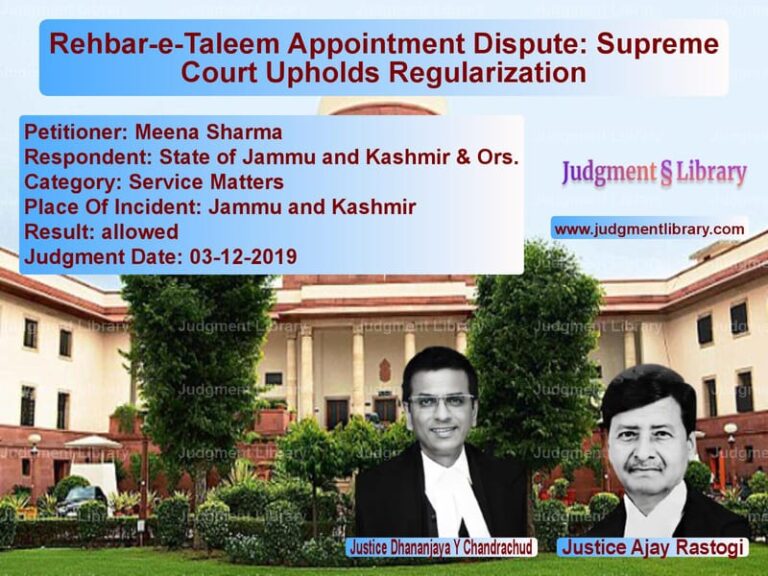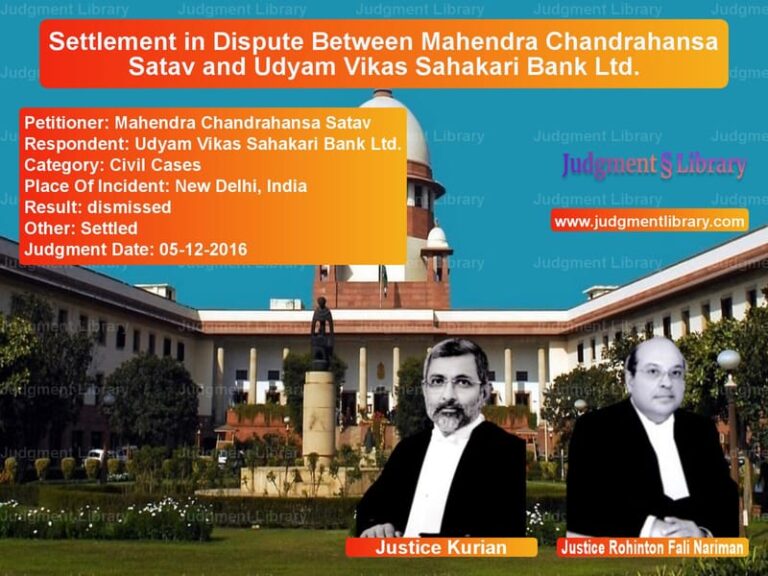Supreme Court Upholds Acquittal in Abetment of Suicide Case Due to Lack of Evidence
The Supreme Court of India, in its judgment in Lalita v. Vishwanath & Ors., upheld the acquittal of the accused in a case of alleged abetment of suicide and cruelty under Sections 306 and 498A read with Section 34 of the Indian Penal Code (IPC). The Court ruled that mere harassment or cruelty is not sufficient to infer abetment of suicide and that there was no cogent or reliable evidence to establish direct or indirect instigation.
Background of the Case
The case involved the tragic suicide of Dev Kanya, who was married to the first respondent, Vishwanath, for about one and a half years before her death. The prosecution alleged that she was incessantly harassed by her husband, father-in-law, mother-in-law, and the first wife of her husband, which ultimately led her to commit suicide by jumping into a well.
Following a complaint by her father, the police registered an FIR, conducted an investigation, and filed a chargesheet against the accused. The Trial Court convicted all four accused and sentenced them to 10 years of rigorous imprisonment with a fine of ₹1,000. However, the Bombay High Court, Aurangabad Bench, upon re-evaluating the evidence, acquitted all the accused.
Key Legal Issues
- Whether the evidence presented was sufficient to establish abetment of suicide under Section 306 IPC.
- Whether the High Court erred in overturning the conviction despite the Trial Court’s findings.
- The applicability of Section 113A of the Indian Evidence Act in cases of alleged suicide due to harassment.
Arguments by the Appellant (Mother of the Deceased)
- The appellant argued that the deceased was subjected to continuous mental and physical torture, pressuring her to transfer land to her husband’s name.
- The prosecution relied on witness testimonies and forensic reports that indicated drowning as the cause of death.
- It was contended that the Trial Court had correctly analyzed the evidence and convicted the accused, and the High Court erred in acquitting them.
- The appellant invoked Section 113A of the Indian Evidence Act, which allows the Court to presume abetment in cases where a married woman commits suicide within seven years of marriage due to cruelty.
Arguments by the Respondents (Accused)
- The defense contended that there was no direct evidence proving that the accused instigated or aided the deceased in committing suicide.
- The allegations of harassment were vague, with no concrete instances that could establish a causal link between the accused’s actions and the suicide.
- The mere fact that the deceased felt pressured over property matters did not amount to abetment under Section 306 IPC.
- They argued that the High Court had correctly evaluated the evidence and found that the prosecution failed to prove guilt beyond a reasonable doubt.
Supreme Court’s Observations
- “There is no cogent or reliable evidence on the basis of which it could be said that the accused persons abetted the commission of suicide.”
- “Mere harassment or cruelty is not sufficient to infer abetment. There has to be some credible evidence that the accused persons aided or instigated the deceased in some manner to take the drastic step of putting an end to her life.”
- “We do not rule out the possibility of the husband pressurizing the deceased to transfer the land once again to his name. However, even such instances, by themselves, may not be sufficient to conclude that the deceased was left with no alternative but to commit suicide.”
- “Even with the aid of presumption under Section 113A of the Evidence Act, it is difficult to say that the accused persons abetted the commission of suicide.”
- “It is possible that the deceased might have felt bad because the first wife came back to the matrimonial home and, being hypersensitive, might have taken the extreme step to commit suicide.”
Final Judgment
- The Supreme Court dismissed the appeal, affirming the High Court’s acquittal of the accused.
- The Court reiterated that in cases of suicide, the presumption of abetment cannot be applied automatically and must be supported by clear and credible evidence.
- The ruling emphasized that courts must differentiate between normal domestic discord and legally actionable cruelty that leads to abetment of suicide.
Conclusion
This judgment reinforces the legal principle that mere allegations of harassment or domestic discord are insufficient to establish abetment of suicide under Section 306 IPC. The Supreme Court has upheld the importance of substantial evidence in cases involving serious criminal charges and ensured that presumptions under the law are applied judiciously and fairly.
Petitioner Name: Lalita.Respondent Name: Vishwanath & Ors..Judgment By: Justice J.B. Pardiwala, Justice R. Mahadevan.Place Of Incident: Aurangabad, Maharashtra.Judgment Date: 30-01-2025.
Don’t miss out on the full details! Download the complete judgment in PDF format below and gain valuable insights instantly!
Download Judgment: lalita-vs-vishwanath-&-ors.-supreme-court-of-india-judgment-dated-30-01-2025.pdf
Directly Download Judgment: Directly download this Judgment
See all petitions in Bail and Anticipatory Bail
See all petitions in SC/ST Act Case
See all petitions in Judgment by J.B. Pardiwala
See all petitions in Judgment by R. Mahadevan
See all petitions in dismissed
See all petitions in Quashed
See all petitions in supreme court of India judgments January 2025
See all petitions in 2025 judgments
See all posts in Criminal Cases Category
See all allowed petitions in Criminal Cases Category
See all Dismissed petitions in Criminal Cases Category
See all partially allowed petitions in Criminal Cases Category

